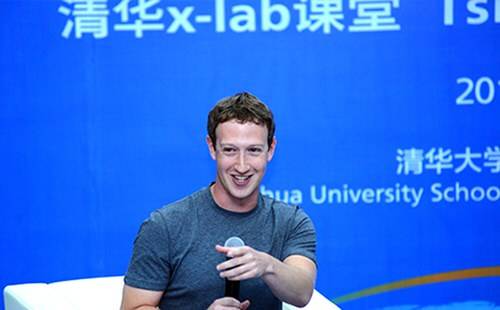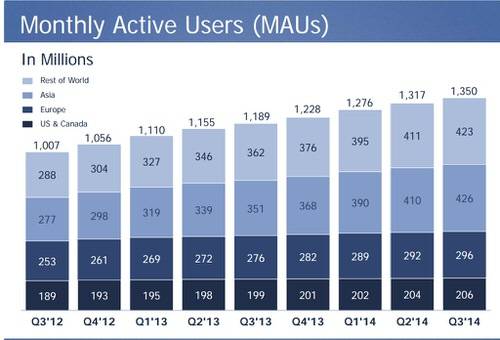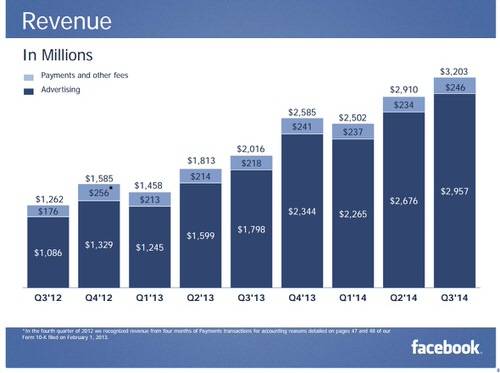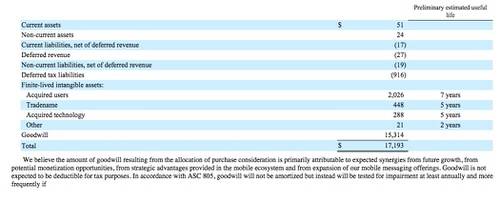
Facebook hasn’t peaked yet, but that point may not be far off.
While 1.35 billion people use Facebook each month, its growth continues to slow, as it reported in its third quarter earnings report on Tuesday. Facebook’s monthly active user count rose 13.5% year over year in the third quarter, compared to 14% in the second, 15% in the first quarter, and 16.3% in the fourth quarter of 2013.
Its continued slow growth points to a problem, albeit an enviable one. So many people already use Facebook that it’s having increasinging difficulty attracting more of them, thanks largely to a lack of reliable Internet service in the developing world.
So what’s a company to do if it relies on the Internet to fuel growth? Bring the Internet to the people.

With Great Size Comes Great Ambition
During the earnings call, CEO Mark Zuckerberg described the company’s ten-year plan. It’s nothing if not ambitous: It includes expanding Internet access throughout the world via Facebook’s Internet.org initiative, as well as artificial intelligence technology and hardware like recently acquired Oculus Rift.
Facebook COO Sheryl Sandberg added that the company has plenty of room to grow in parts of the world Facebook doesn’t yet reach. She cited efforts like Facebook’s partnership with Airtel in Zambia that provides people with access to free Internet services (including, naturally, Facebook).
See also: Zambia Gets Free Facebook Access! (And Internet, Sort Of)
Another hurdle facing the company is the Great Firewall of China, which has blocked Facebook from that country’s 1.4 billion people since 2009. (Only a relative handful of Chinese users can access Facebook via proxy services that bypass government censors.) While Zuckerberg did his best during the call to play up the company’s opportunities there, a top Chinese Internet official said in September that Facebook “cannot” offer its service freely any time soon.
WhatsApp and Instagram are available in China, although the government blocked Instagram after photos and video from protests in Hong Kong appeared on the service.
“We’re going to be here for decades and we want to create good relationships with these countries and businesses around the world,” Zuckerberg said.
Despite slowing growth, Facebook’s not having any trouble making money. Facebook pulled in $3.2 billion in revenue this quarter, much of that stemming from the company’s mobile efforts. Mobile advertising now accounts for a full two-thirds of Facebook’s overall ad revenue.

What’s Up With WhatsApp?
Facebook also released financial information regarding its WhatsApp messaging-app unit, which it acquired earlier this year. Of the $17 billion purchase price, Facebook considered $15 billion “goodwill,” which is basically accounting-speak for the difference between what you pay for something and its actual fair market value.

WhatsApp isn’t much of an actual business at this point—it posted a net loss of $138 million on just $10 million in revenue in all of 2013. Unlike Facebook, WhatsApp makes its money off a $1 per year subscription fee (though users get their first year for free), and for now it remains ad-free.
Lead image by Mark Zuckerberg
















